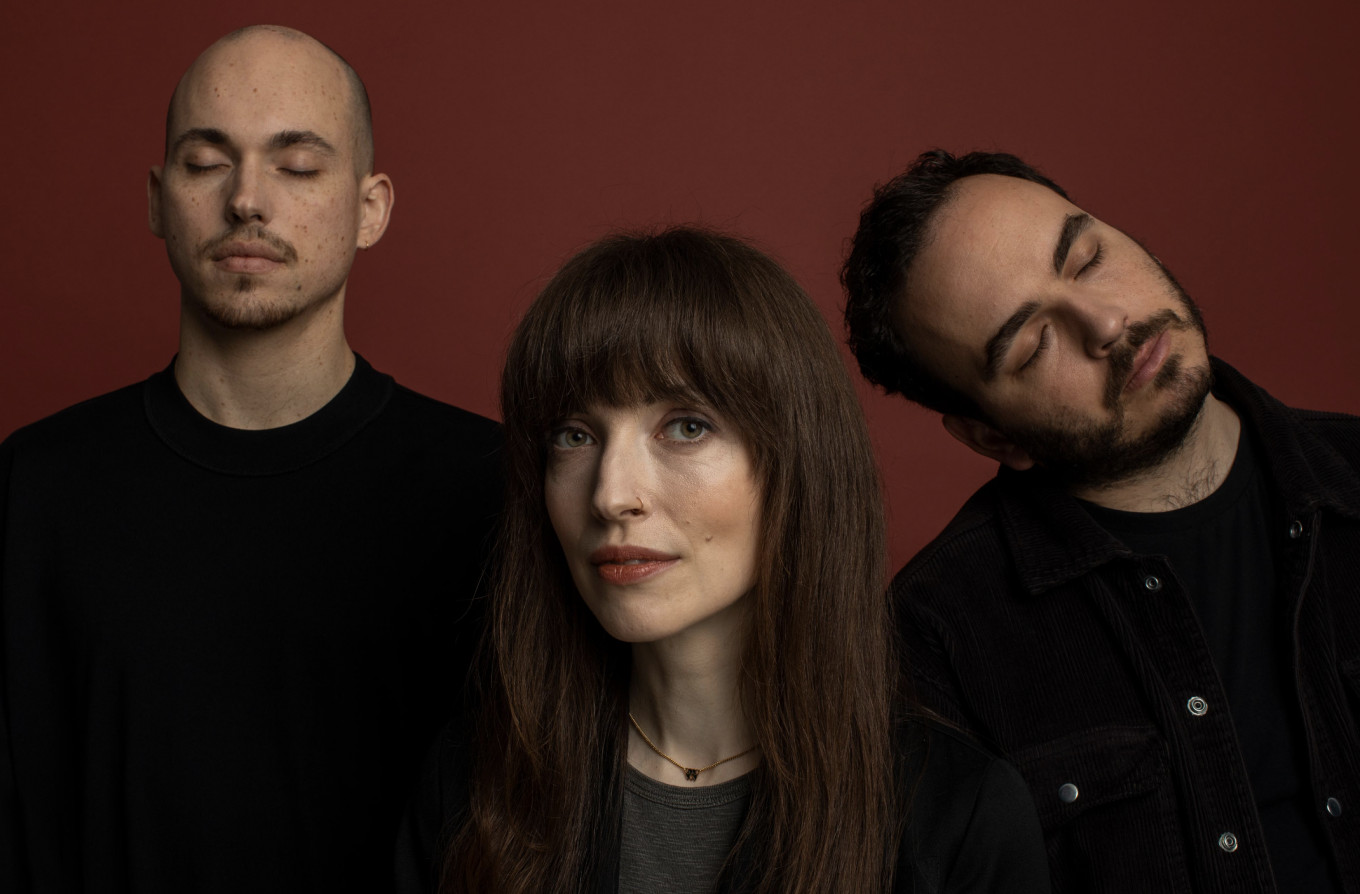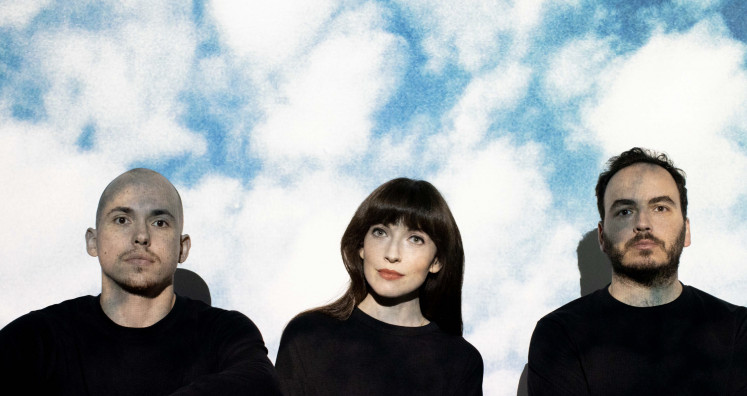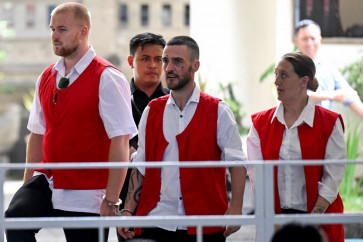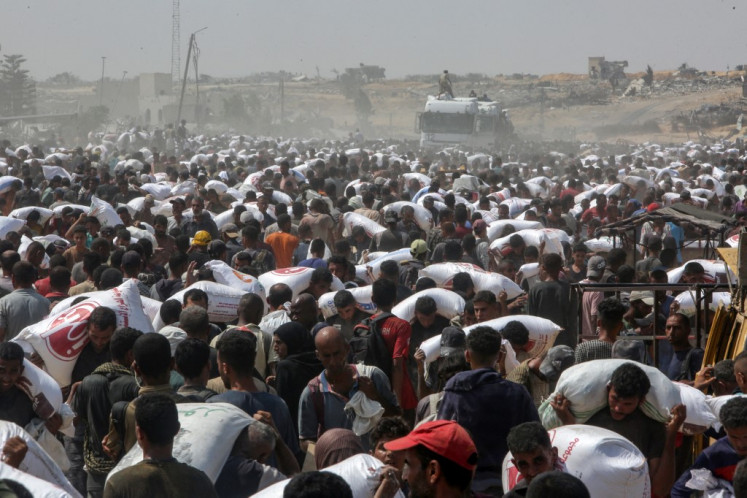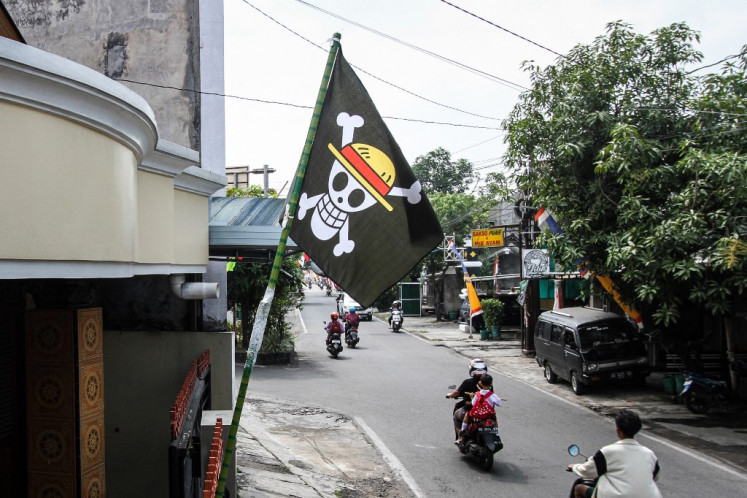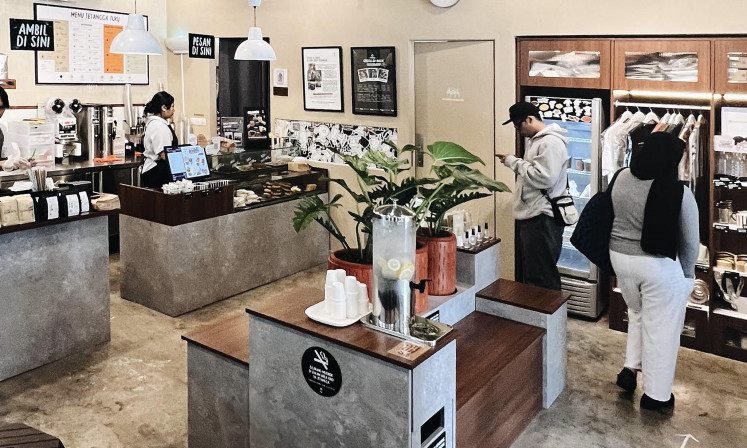Popular Reads
Top Results
Can't find what you're looking for?
View all search resultsPopular Reads
Top Results
Can't find what you're looking for?
View all search resultsUK alternative band Daughter explains process behind new album
Daughter’s Elena Tonra talks about acceptance and peace, overthinking things and navigating time and space in working on the new album.
Change text size
Gift Premium Articles
to Anyone
I
n December 2022, British alternative trio Daughter, then on hiatus, deleted (or archived, rather) all their past Instagram posts and posted a washed-out outline of something that resembled a flower. It told viewers to sign up to “receive some junk mail in the post.”
Something was obviously on the way, and I immediately thought about them coming back together, but it was still quite a fun take on being mysterious. A love letter to our younger selves, nevertheless.
The band announced a new studio album, Stereo Mind Game, on Jan. 9 along with the release of a new track, “Be On Your Way,” followed by “Party” and then “Swim Back.” The album, released on April 7, is a gripping follow-up post hiatus: still immersively sorrowful yet embracing a newfound sense of hopefulness in exchange for a grain of bitterness.
Postage paid
“‘Be On Your Way’ was a pressed flower, ‘Party’ was a bunting decoration and ‘Swim Back’ was a swimming badge!” said guitarist Elena Tonra. She was referring to the contents of the “junkmail” that the band posted on Instagram. Each of the singles was represented by an item. “We wanted to do something that connected with the album as a surprise and gift for listeners.”
I shrugged off the opportunity to sign up for the junk mail due to my past bouts (which I had lost) with the local post office, but a tinge of regret did come unexpectedly. Oh, the possibility!
“We wanted to do something that connected with the album as a surprise and gift for listeners,” Tonra said. “It gave us a lot of joy to see them arrive and surprise people and hopefully spread a little bit of that joy with the junk mail [...] that was a fun way to let people know about the upcoming music.”
After Not to Disappear (2016), and video game soundtrack album Music Before the Storm (2017) Stereo Mind Game is essentially the band’s first studio album in seven years.
“I think there were times [when] we didn’t think we could finish this album. It was an intense process and, sometimes, we got creatively stuck,” Tonra remembered. “I think we've all pushed ourselves further, in production, in playing, in writing. And navigating the distance was a challenge but we are lucky to be able to devote the time to the music and to take the years we needed to take to finish it.”
The album’s process was quite onerous and also intermittent, spread over a long course of time and across different places in the United Kingdom and the United States. Partly, if not mostly, this was due to the fact that the personnel chose to live in different places not long after Music Before the Storm was released.
“A lot of the reason was more about logistics. We started the process in California as we had a break from touring there in 2017, I then went back to California in 2018 as Igor was living in San Diego. Remi has been living in Portland, Oregon, for many years so his parts were recorded there,” said Tonra, referring to guitarist Igor Haefeli and drummer Remi Aguilella.
“I live in London, Igor returned to live in the UK in 2019 so it meant we saw each other more regularly between his studio in Bristol and studios in London.”
“A lot of file sharing and emails also. An album of fragments and puzzle pieces in the writing at first, but by the end of the process me and Igor were together to record a lot of it,” Tonra added.
Daughter took time apart after a long jam session that spanned over a few days at the end of 2017. (4AD/Courtesy of 4AD/Daughter)From across the pond
“We weren’t all three in a room together again until mixing the record in London in 2022,” said Tonra. “So it was a very long-distance process, which suits some themes on this album very well. Feels [like] an important part of the story.”
Tonra also noted that not being together in a room created a new way of writing. “There was more time for each of us to think about our parts, to consider things, before sending it back over. Like writing letters to each other. I think that has shaped the sound of the album a lot.”
Listening to the album as a whole feels like there is a certain lighter general overtone, in which it sounds more collected without sacrificing the band’s signature atmospheric grit, its expansiveness remained intact while it provided a bit more depth.
“It does feel like a brighter, more hopeful record,” said Tonra in agreement. “It wasn’t a very conscious intention, although the process started in California so maybe the sun had something to do with it.”
“I think, lyrically, it is a reflection of where I find myself in life and maybe in some subjects that I had once felt very intensely worried about, I have more of an acceptance and peace. Especially about love,” Tonra continued.
The band’s release for the album talked about a “central romantic figure”, who Tonra met when she was visiting the US. A significant relationship that would otherwise be fostered across the Atlantic. “Just because something ended, doesn’t mean that it was not real,” said Tonra, quoting a friend of hers in the release.
Tonra’s lyrics are often perceived as very introspective and personal, sometimes so much that it makes listening to them feel a bit wrong. A bit like stark journaling. Something to listen to while soaking up one’s pain and suffering, but this time, it gives something more to mend our wounds to.
Inherited feelings
“When I started writing I never thought anyone would read or hear it. It was always for myself, to process experiences in life,” Tonra reminisced. “For previous records most lyrics were kept almost exactly as they were first written down. For this album I reflected quite a bit on the lyrics, adding and removing. I think because I had the time, my mind changed so much.”
“But I am happy with every song, all the overthinking was for the best in the end.”
When asked about her earliest recollection of writing lyrics for a song, Tonra answered, “I started writing notes and poems when I was very young.” These notes and poems, she further noted, “always had a tune, but I couldn't play an instrument back then so they were always just words on paper, kept in a drawer and collected.”
Tonra would sometimes record them on a tape recorder, while secretly playing her brother’s guitar at first when she was in her teens. “Then my father inherited some money from an uncle who had passed and bought both me and my brother guitars as a gift,” she lovingly recalled. “It was really special and meant so much.”
“I learned from my brother and from a friend at school, called George, who taught me some chord shapes, open tunings and how to finger-pick,” said Tonra. “After that I just started to make up my own patterns, memorizing what sounded good and in what order. I still play and write like that. I can’t read music.” Her approach to music is pretty much visceral.
“To be honest I'm just so happy and proud of this record. I never have too many ideas or ambitions for the future of our records once they are released. The idea of someone one day finding it and listening to it is beautiful to me. Whether it's on release day or in many years in the future,” Tonra said in closing.

